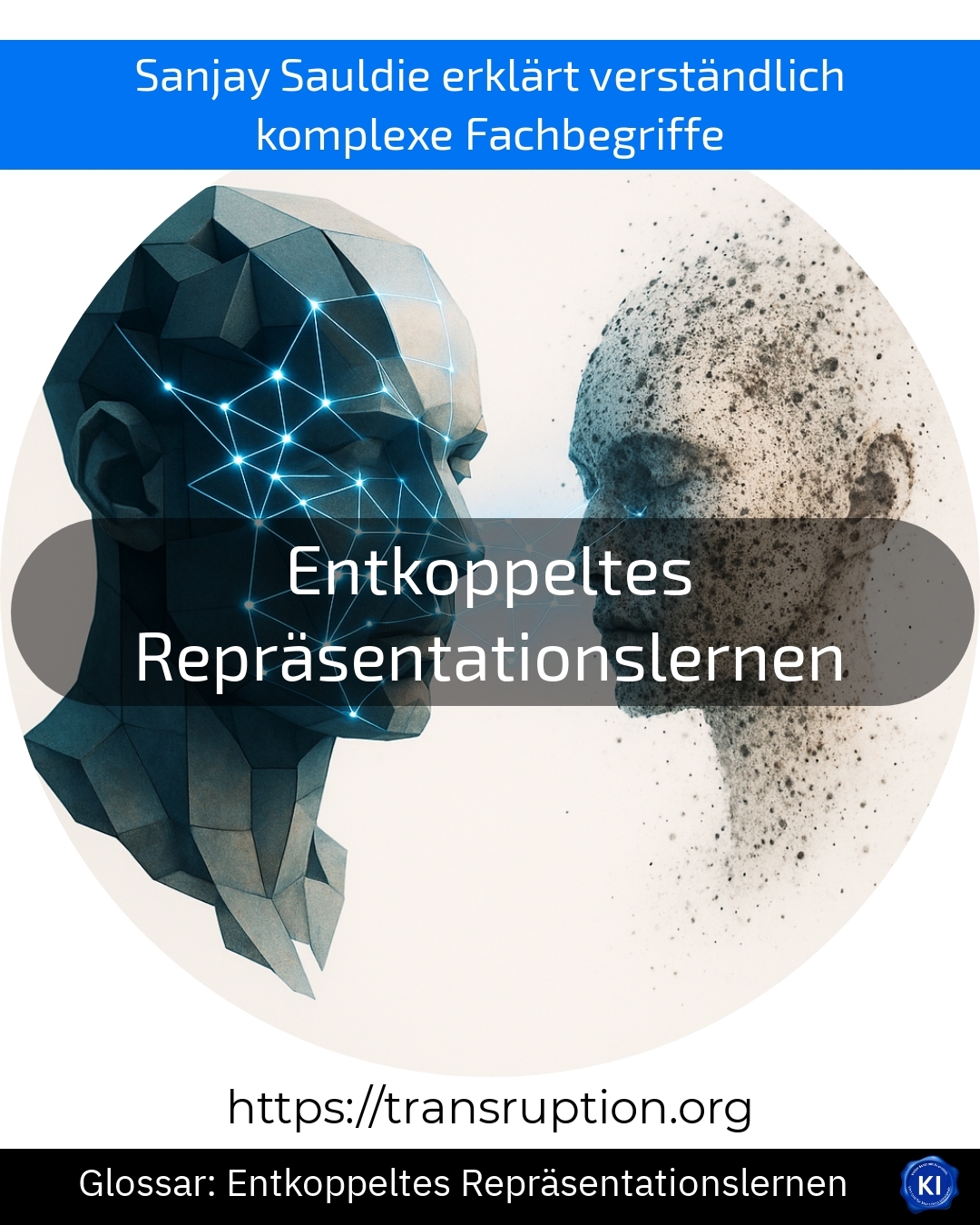Decoupled representation learning belongs to the fields of artificial intelligence, big data and smart data. This technical term describes a method in which computers or machines learn to recognise information and patterns from data without being directly guided by a specific goal. The system initially filters out important features from the data on its own instead of trying to solve a specific task - such as recognising a "dog" or "cat".
An illustrative example: In a factory, an AI collects a lot of sensor data from machines. Using decoupled representation learning, the AI analyses this data without knowing what a normal or faulty machine is. It discovers typical behavioural patterns or anomalies. Experts can later use these patterns to recognise problems more quickly or gain new insights from the factory data.
The advantage: the system independently learns correlations and structures from huge amounts of data in a flexible manner. This enables companies in areas such as Industry 4.0 or data analysis to obtain valuable information more efficiently and with less human effort.















